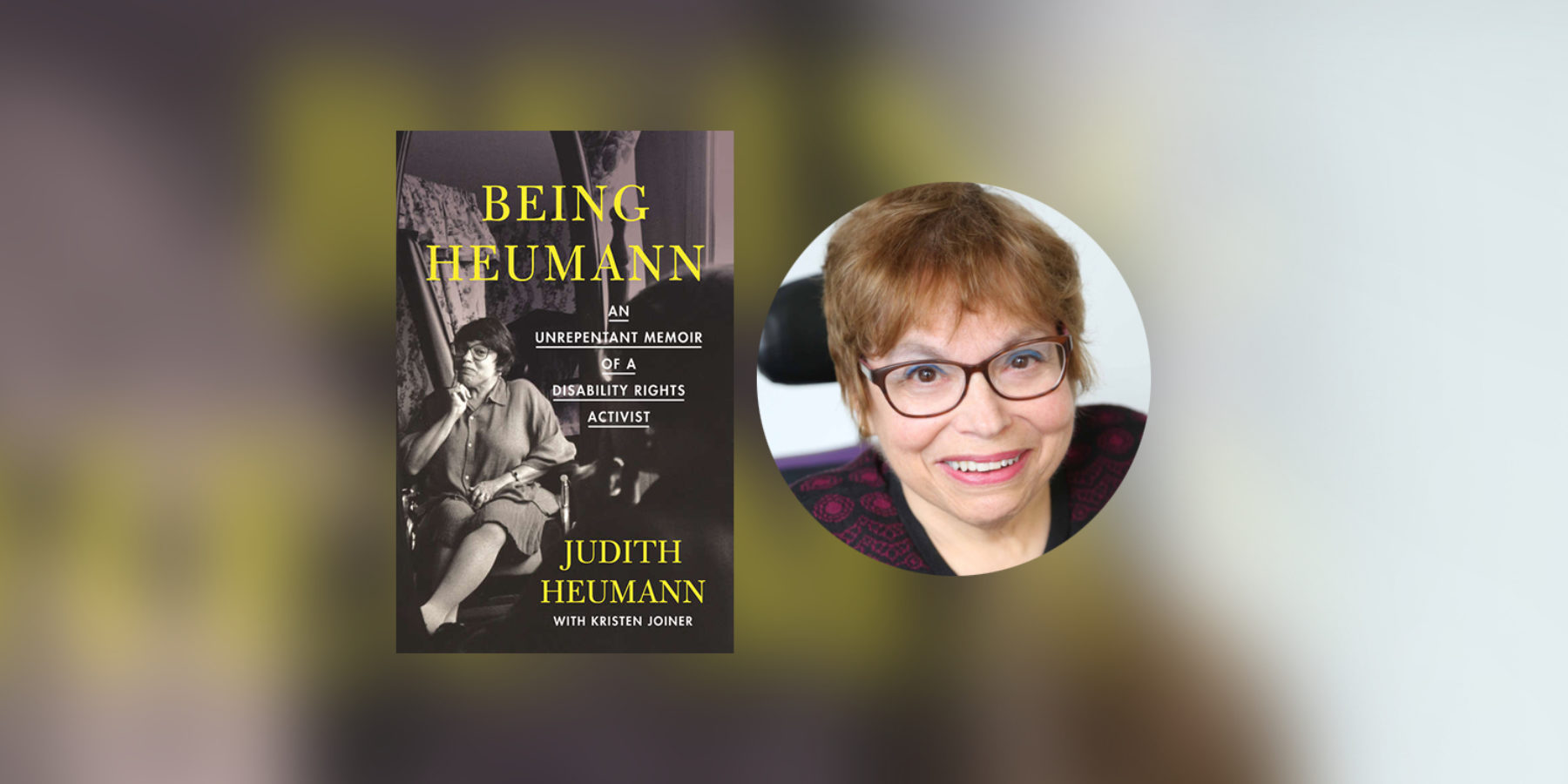Judy Heumann got her start as a disability rights advocate at a young age. A wheelchair user since 18 months old, she was denied access to an education at her neighborhood elementary school because the school considered her “a fire hazard.” When the New York Board of Education denied her a teacher’s license due to her disability, she sued and won the right to teach. And when the federal government failed to implement the first civil rights legislation for people with disabilities, she led the longest occupation of a federal office building to date, protesting until the regulations were signed and enacted, unchanged.
She has spent her career advocating tirelessly for the rights of people with disabilities in the US and across the globe, and her newly released memoir, Being Heumann: An Unrepentant Memoir of a Disability Rights Activist, chronicles her trajectory from her childhood in Brooklyn through her tenure in the Clinton and Obama administrations, the World Bank, and beyond.
Here she shares her advice for the next generation of leaders working to build an inclusive, equitable and just world.
On the Future of Technology to Facilitate Inclusion
When it comes to technology, Judy acknowledges that while we’ve come a long way, there’s still a long way to go: “It’s not just about building technology that is accessible, but making sure people can find and use those features.” She advocates for clear, up-front information for new users of a technology about the different options. For example, she noted, “if you’re not of the disability world, you don’t necessarily know what it means to use the accessibility features.”
Another key area for improvement is captioning. “Right now, with so many things being virtual, lack of captioning is such a problem. For example, I’m Jewish, and I go to services virtually now, but there’s no captioning. It’s not only an issue for people who are deaf or hard of hearing, but frequently the sound systems aren’t working well, so you can have very good hearing and still not know what people are saying. So I think we need to see more innovation in that field.”
She also cautioned that while technology can be very beneficial, we need to consider the potential negative consequences: “Technology can be very valuable, but what are the risks that we’re taking? And who’s looking at those risks?”
Advice for Finding Courage in Self-Advocacy
“I think it’s important that people not be alone,” emphasizes Judy. She highlights the particular challenges for students going to college, who may be used to having an IEP or 504 plan. In addition to adjusting to new peers and environment, they must advocate for accommodations on their own. Her advice? “For me, it’s always been important to be working with other disabled people.” Particularly now, during the pandemic, with so much learning moving online, Judy urges that it’s even more important for disabled people to connect.
“It’s recognizing that your situation is generally not a unique situation. When you are feeling that you don’t know how to push back, after being denied what you view as a reasonable accommodation, you need reassurance from someone else who can say, ‘What you’re saying is very reasonable, and actually, you should be looking to do more.’ Or, ‘I went through a similar experience, and you could try this other way.’”
How do you get connected? Judy recommends reaching out to local advocacy groups such as state chapters of the National Federation of the Blind or International Dyslexia Association, or to get connected with a local Center for Independent Living. Additionally, she highlighted that some universities’ Disabled Student Services offices will create opportunities to meet other students with disabilities.
Leading Inclusively
At every step of her journey, whether serving as a teen counselor at Camp Jened (see for yourself in the movie, Crip Camp), protesting for civil rights during the 504 sit-ins, or leading a diverse team to serve children with disabilities as the Assistant Secretary to the Office of Special Education and Rehabilitation Services, Judy has modeled inclusive leadership. When asked about how others can follow her lead, she gives the following advice:
- It’s important to learn while we’re doing our work;
- It’s important to know when to compromise and when not to compromise;
- It’s important to make sure that people are heard and listened to.
“Inclusion benefits me and it benefits everybody else,” she shares. “A lot of what I’ve been fortunately able to do is work with people that are not just like me, but have different ways of doing things and thinking about things; we each play a role, and we each respect each other.”
Read Being Heumann: An Unrepentant Memoir of a Disability Rights Activist.


Be First to Comment